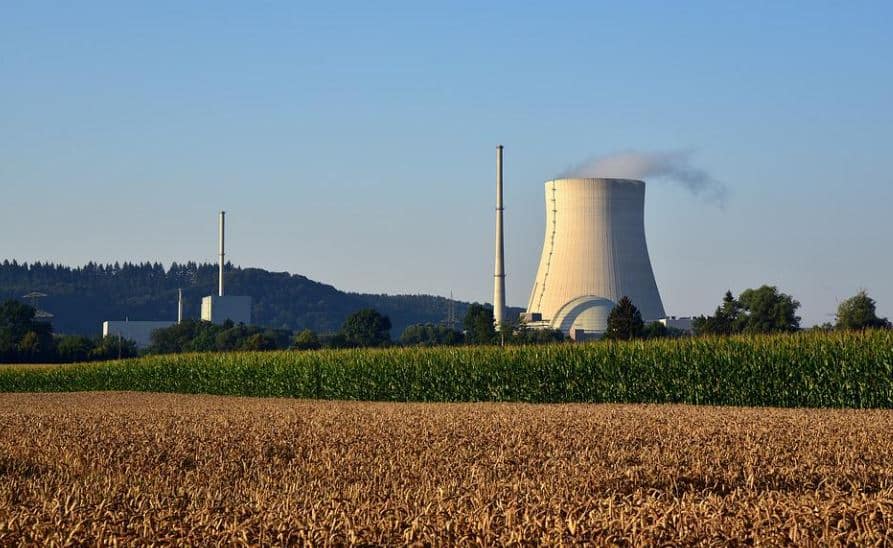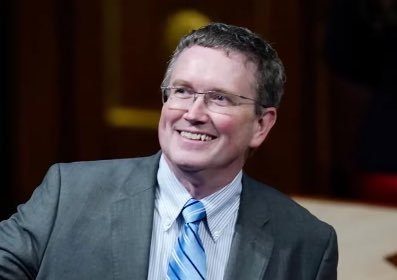House Republicans Urge Energy Secretary to ‘Prioritize’ Nuclear Power

WASHINGTON — Two members of the House Republican caucus are urging Energy Secretary Jennifer Granholm to revitalize America’s nuclear power infrastructure and include it in an “all of the above” approach to securing the nation’s energy future.
Reps. Fred Upton, R-Mich., and Cathy McMorris Rodgers, R-Wash., the ranking member of the House Energy and Commerce Committee, said in a letter sent to Granholm on Wednesday that “Russia’s invasion of Ukraine exposes the risks of weakening American energy security.”
“These risks extend beyond our oil and gas assets to include supply vulnerabilities in our civilian nuclear sector,” they said.
“Unfortunately, global nuclear fuel market disruptions in the wake of Japanese and German nuclear reactor shutdowns following the Fukushima accident in 2011, as well as U.S. reactor shutdowns over the past decade, undermined domestic uranium mining, conversion and enrichment services,” Upton and Rodgers continued, adding, “This eroded our domestic nuclear fuel infrastructure.”
One result, the representatives said, is that America became more reliable on inexpensive, Russian-sourced fuels and today gets more than 20% of its nuclear fuel supply from a source with which it now has seriously strained relations as a result of Russian President Vladimir Putin’s unprovoked invasion of Ukraine.
They argued the ongoing conflict and the lob and return-of-service of sanctions by both sides has made the nation’s remaining nuclear plants vulnerable to fuel supply disruptions. At the same time, they said, such shortages could slow the deployment of advanced new nuclear technologies.
Given what they see as the urgency of the situation, Upton and Rodgers urged Granholm to “prioritize departmental capabilities to address vulnerabilities in the short-term and to facilitate restoration of private, domestic nuclear energy fuel infrastructure in the long-term.”
Both noted that Granholm, as energy secretary, could take a number of steps to address their concerns. Using her authority under the Atomic Energy Act, for instance, she could take actions to increase the availability of domestic uranium and conversion services to advance domestic fuel cycle capacity in the United States.
Among other things, this would allow her to expand the existing American Assured Fuel Supply to address supply disruptions.
The American Assured Fuel Supply, created by the Department of Energy in the early 2010s, is a reserve of low enriched uranium to serve as a backup fuel supply for both domestic facilities and foreign allies in the event of a fuel supply disruption.
Under the DOE Organization Act, Granholm is further authorized to direct coordination between components of the department, including the National Nuclear Security Administration and the Office of Nuclear Energy, to assure all DOE resources can be brought to bear to assist supply threats.
The representatives emphasized that they aren’t promoting nuclear power at the expense of other energy sources, insisting merely that nuclear power should be receiving the same attention from the administration as fossil fuels and renewable energy.
They do note, however, that President Joe Biden’s recently proposed fiscal year 2023 budget “indicates no action” on the nuclear fuel front.
Biden’s $5.8 trillion spending plan, released on March 28, calls for increasing the DOE’s budget by 7.1% to $48.2 billion, up from $45 billion enacted in fiscal year 2022, partly to reflect spending required by the bipartisan infrastructure bill.
It also includes $44.9 billion for clean energy, electrification and other programs to help cut greenhouse gas emissions and prepare the U.S. for the effects of climate change.
“I believe America must pursue energy independence, with every tool in the toolbox,” Upton said in his weekly email to constituents this week. “Nuclear energy is a part of an ‘all of the above’ energy plan that includes renewable and traditional energy sources.”
According to the Energy Information Administration, there were 55 commercially operating nuclear power plants with 93 nuclear power reactors in 28 U.S. states as of Dec. 31, 2021.
Of the currently operating nuclear power plants, 23 plants have one reactor, 32 plants have two reactors, and three plants have three reactors.
The Palo Verde nuclear power plant in Arizona is the largest nuclear plant, and it has three reactors with a combined net summer electricity generating capacity of 3,937 MW.
The R.E. Ginna Nuclear Power Plant in New York is the smallest nuclear plant, and it has one reactor with a net summer electricity generating capacity of about 581 MW.
The newest nuclear reactor to enter service, Watts Bar Unit 2 in Tennessee, which has 1,122 MW net summer electricity generating capacity, began commercial operation in 2016.
Two other nuclear reactors are actively under construction: Vogtle Units 3 and 4 in Georgia.
Dan can be reached at [email protected] and at https://twitter.com/DanMcCue

























